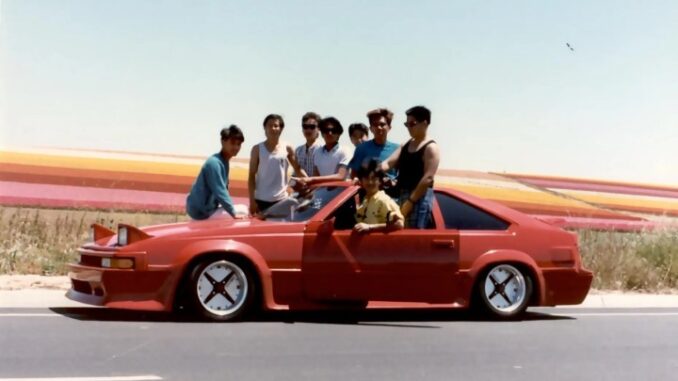
Elizabeth Ai’s six-year journey to create New Wave (2024), a documentary capturing the experience of Vietnamese Americans’ postwar resettlement in the 1980s, was halted in March 2020 due to the COVID-19 pandemic. She shifted her focus from directing to archiving, sifting through family photographs only to bump up against the limitations of Vietnamese-American archives. She opened up her research to the internet, creating an Instagram page and inviting others to share family photos and videos from their personal collections. In the resulting pictures, aunties and uncles sport spiked permed hair and don shoulder pad-fitted blazers while dancing emphatically to 1980s New Wave disco, capturing the essence of this fleeting cultural moment.
For Ai and many other Vietnamese Americans who grew up in the 1980s, New Wave was the soundtrack of their childhood. But if the connection between Euro synthpop bands such as Depeche Mode and Vietnamese American refugees in Orange County seems like a stretch, you’re not alone. Elizabeth called up family members to explore those connections, finding that they encountered these synthpop records alongside Viet New Wave covers/cassette compilations at record shops in Phước Lộc Thọ, or Asian Garden Mall, in Westminster, California. Many refugees had settled in Orange County because of its warm climate and proximity to Camp Pendleton, the first refugee camp to open for resettlement through church sponsorship, leading to the creation of many such places where cultures mixed.

Leave a Reply